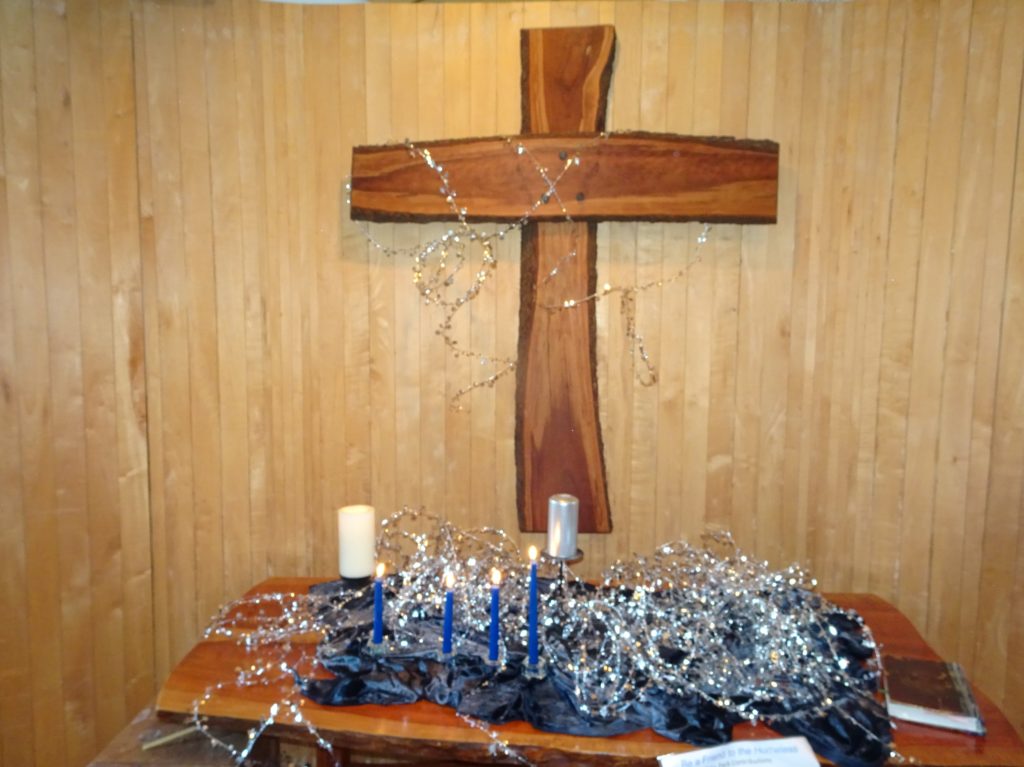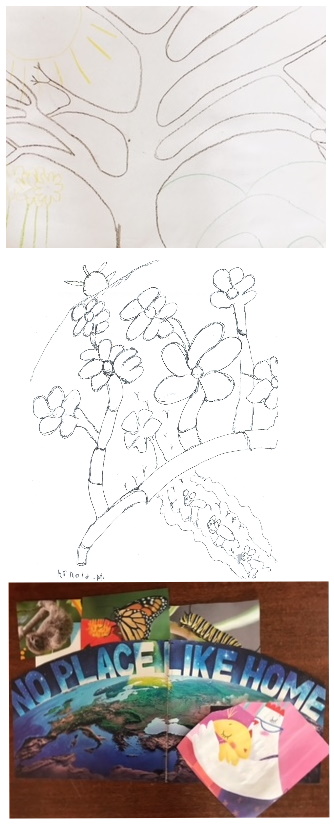Sermons
Seekers recognizes that any member of the community may be called upon by God to give us the Word, and thus we have an open pulpit with a different preacher each week. Sermons preached at Seekers, as well as sermons preached by Seekers at other churches or events, are posted here, beginning with the most recent.
Click here for an archive of our sermons.
Feel free to use what is helpful from these sermons. We only ask that when substantial portions are abstracted or used in a written work, please credit Seekers Church and the author, and cite the URL.
.wp-show-posts-columns#wpsp-4136 {margin-left: -2em; }.wp-show-posts-columns#wpsp-4136 .wp-show-posts-inner {margin: 0 0 2em 2em; }
“Thanksgiving Sermon ” by Lucy Slater
Advent 1
November 28, 2021

Luke tells us in the scripture today that “ On the earth, nations will be in anguish and perplexity at the roaring and tossing of the sea. People will faint from terror, apprehensive of what is coming on the world” and it is true – all around us we see fear denial, anger, destruction. It is very scary. I worry about my children and their lives. I live with a constant knot of tension in my stomach.
I feel caught in the trap that Luke warns of us – weighed down by the anxieties of life, worrying about whether I am keeping up with my work and whether I am doing well enough; worrying about trying to be a “good” friend and family member, and sometimes, lifting my head above all of that, I worry that I am not doing all I should and could be doing to save the world: to fight racism, to combat climate change, to save the environment.
“Seeking Good News of Christ for the Climate ” by Kolya Braun-Greiner

November 21, 2021
When I was asked to preach for “climate in the pulpit Sunday” a national event sponsored by Interfaith Power & Light, I faithfully took a look at the lectionary scriptures for this Sunday to see whether there was any relevance a faithful response to climate change and I concluded there was not a strong thread I could hang onto. So I’m going “off the rails” this Sunday and am encouraged that this is not outside of Seekers tradition. Instead I will focus on Seeking Good News in a Time of Great Unraveling and tie it in with the two themes before us – this liturgical season on The Home of God is Among Us along with today’s conclusion of that season, the Reign of Christ Sunday. I confess that last week’s gospel had more to do with today’s climate focus with its references to disastrous upheaval: “There will be earthquakes in various places, and famines. These are the beginning of birth pains.” (Mark 13:8) Indeed it seems as though we are amidst the labor pains of something struggling to be born and we may find ourselves asking how long Lord, how long with this labor last?
I’m convinced that a lot of people are feeling a deep despair and angst about our future, which is understandable. During the Active Hope class I taught 2 months ago, some of us shared these feelings vulnerably in community. And so I invited the class to write Lamentations – and here’s the one that Sharon Lloyd wrote which I feel is so expressive of our doubts, fears and deep caring:
“Most People are Good” by Larry Rawlings

November 14, 2021
Larry related a memory from his own childhood and then showed a video called “Ex Slaves talk about Slavery in the USA” before concluding that although there is much evil in the world, most people are good. Please see the video that he shared, which was recorded in the 1940s, at https://www.youtube.com/watch?v=fZfcc21c6Uo. The text of Larry’s sermon is unavailable at this time.
“The Wisdom of the Widows” by Erica Lloyd

November 7, 2021
Every time I’m going to sign up to preach, I first visit the website of the Revised Common Lectionary and scroll through weeks and weeks of scriptures. I wait for some kind of reaction in myself, be it surprise, compassion, or even revulsion – when something catches my attention, I trust it’s a door worth opening.
And when I got to this week’s scriptures, what caught my attention – in fact all I could see – was the preponderance of widows. There are three in the scriptures you’ve just heard: Ruth and Naomi, and the unnamed widow in the Gospel reading. The alternative readings also include a story about a widow who feeds and cares for Elijah, and a psalm that exhorts us to care for the widow … so, ok, only 5 widows mentioned; but still, given that we read about an average of 0-1 widows on most Sundays, it felt like a lot.
When I sat down to think, ok, what is the Holy Spirit trying to tell me with all of these widows, the first thought I had was: vulnerability. In that last scripture, the Psalm, widows are listed alongside orphans and foreigners as people in need of special care. Those three are so often grouped together in the Bible, it’s almost as if it’s one word: the-widow-the-orphan-the-stranger; together standing as shorthand for all those who are oppressed and neglected by society. The association with vulnerability is so strong that when I took a quick poll of you all, asking the Seekers mailing list for the first word that came to mind when you thought about widows in Biblical times, more than 70% of the responses were on that theme. Here are some of them: Poor. Poverty. Alone. Abandoned. Lonely. Ostracized, Discarded, Disenfranchised. Helpless. Liability. Dependent.
“What We Need is More Saints” by Marjory Bankson

October 31, 2021, Observing All Saints Day
Because today is All Saints Day, I am going to depart a bit from my usual practice of working with the lectionary scriptures and, instead, tell some of the story of Seekers Church through the six people that we will be adding to our Memory Wall this year. The number is larger than usual because we did not add any tiles to the wall last year because of the pandemic.
Many years ago, when Peter and I were shepherding a youth group at the Post Chapel in Ft. Benning, Georgia, somebody gave us an old copy of Faith At Work magazine. In it we found an article by Elizabeth O’Connor titled “What We Need is More Saints.” That is the title of my sermon today.